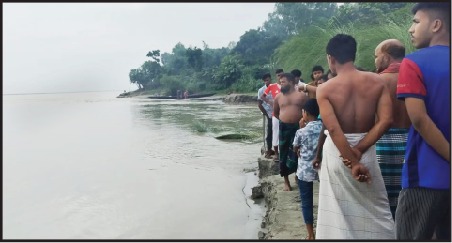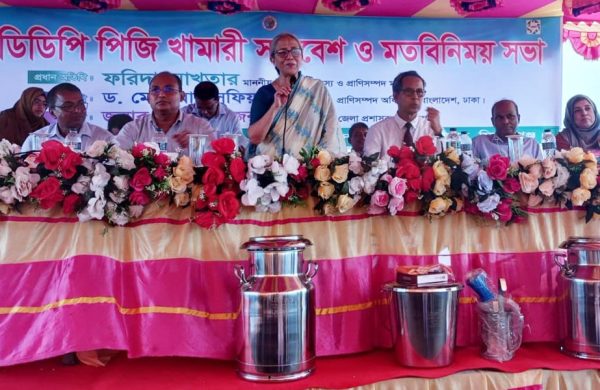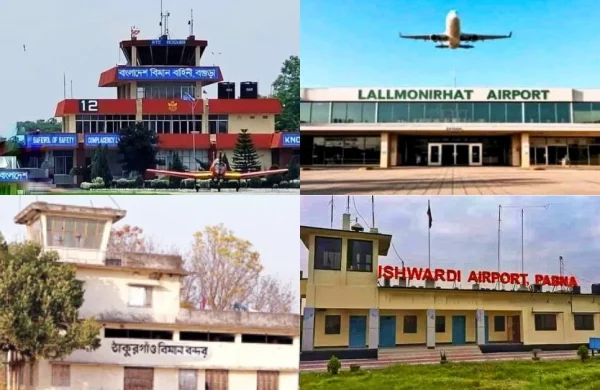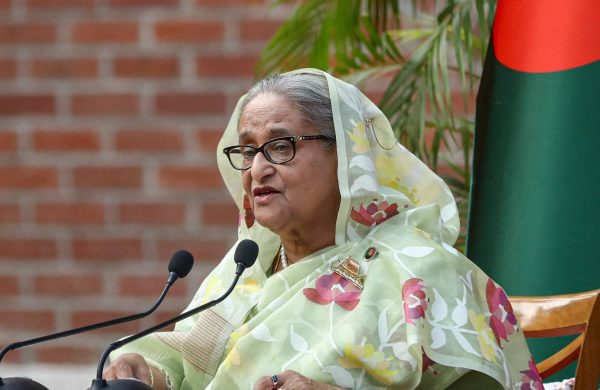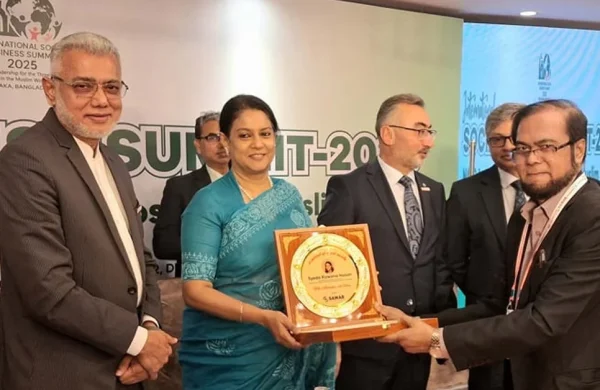Former IGP Benazir’s assets under ACC’s grip
- Update Time : Saturday, May 25, 2024

TDS Desk:
Following a court order, all assets of former Inspector General of Police (IGP) Benazir Ahmed and his family have been seized.
As a result, the Anti-Corruption Commission (ACC) will look after of his extensive wealth, allegedly amassed illegally during his tenure.
Officials said that the ACC will form a committee in this regard.
Legal experts and ACC officials said that a government employee could not accumulate such wealth through legitimate means. If found guilty, Benazir Ahmed may face long-term imprisonment, and his assets will be permanently confiscated by the state.
The order, issued by Dhaka’s senior special judge’s court last Thursday, remains effective pending further decisions from the appellate division.
An ACC official stated that the Anti-Corruption Commission will oversee the entirety of the seized and confiscated assets of the former IGP. The three-member investigation committee, currently probing Benazir’s illicit wealth, will select the members of the supervisory committee. In districts where the ACC lacks offices, the district administration might be assigned the oversight responsibilities.
The frozen bank accounts, on the other hand, will be managed by the respective branch managers of the banks involved.
The official confirmed that, following the court order, Benazir Ahmed can no longer has control over these assets; they are now under ACC’s jurisdiction. The ACC will soon form a committee and appoint a receiver, and execute it through the court.
The receiver committee could include ACC officials, district administration, or any neutral body. All properties will display court order signboards, and notices will be published in newspapers with copies sent to relevant offices.
A review of the court order documents reveals that properties registered under Benazir Ahmed, his wife Zishan Mirza, and their three daughters—Farhin Rishta Binte Benazir, Tahsin Raisa Binte Benazir, and Zahra Zerin Binte Benazir—have been seized. This includes 83 deeds amounting to a total of 346.30 bighas of land, with a deed value of Tk106.5 million. However, current estimates suggest these properties are worth at least five to seven times more.
Additionally, the court ordered the freezing of 33 bank accounts held in their names, which include regular accounts, savings certificates, and credit cards. The exact amount of money in these accounts is unknown, but the order states that no funds can be withdrawn from them. According to ACC regulations, these accounts will be under the control of the respective bank managers.
During Thursday’s hearing, ACC lawyer Mahmud Hossain Jahangir drew attention to the court that Benazir Ahmed and his family were attempting to sell and transfer their illegally acquired assets, both within and outside the country, in an effort to launder them abroad. Jahangir stated that transferring or selling these assets before the investigation or trial concludes would harm the state’s interests.
The ACC lawyer also stated that Benazir Ahmed is accused of abusing his power and engaging in various irregularities and corrupt practices to amass hundreds of crores worth of undisclosed assets in the names of himself, his wife, and his daughters, both domestically and internationally. These assets include a significant amount of both movable and immovable properties acquired illegally.
Following this, the court issued its order.
The judge stated that considering the importance of the investigation officer’s petition and the seriousness of the allegations, the request to seize the immovable properties and freeze the movable assets appeared justified. Without such actions, there is a high risk that these properties might be transferred, making future confiscation by the state impossible.
At a press conference on Friday, Awami League General Secretary Obaidul Quader commented on the seizure of Benazir Ahmed’s assets, stating, “No one can escape justice if they commit a crime. The judiciary and the ACC are independent. If someone is found guilty, why would we protect them, whether they are a former IGP or a former army chief?”
The report revealed that Benazir Ahmed’s family owns extensive properties, including a luxurious resort on 600 bighas of land in Gopalganj, additional land nearby, and high-value real estate in Dhaka. Despite his career earnings totaling Tk1.85 crore, his vast wealth raises significant questions about its legitimacy.
The second part, published on 2 April, revealed another resort built on 160 bighas of land in Noljani village of Bhawal Garh Union in Gazipur, with at least 20 bighas belonging to forest land. Benazir’s family owns 25% of this resort.
These reports stirred significant discussions both domestically and internationally.
On April 4, Supreme Court lawyer Salah Uddin Regan requested the ACC chairman to initiate an investigation. On 21 April, he filed a writ in the High Court, and on the same day, lawmaker and Supreme Court lawyer Sayedul Haque Sumon filed a complaint with the ACC.
Consequently, the ACC formed a three-member investigation committee on 22 April, consisting of Deputy Director Hafizul Islam, Assistant Director Zainal Abedin, and Niamul Hasan Gazi. The next day, the High Court ordered the submission of an investigation progress report within two months.
ACC source said that investigation committee has found substantial wealth held by Benazir and his family, based on the report published in Kaler Kantho.
The investigation is ongoing, and further measures will be taken as new information is found, an ACC official said.
Following the investigative report on Bhawal Resort, the Department of Environment initiated an inquiry and found the allegations to be true.
On 14 May, the resort authorities were summoned and fined Tk 24 million for operating without environmental clearance and causing ecological damage.
Director of Monitoring and Enforcement Masud Hasan Patwary confirmed that the fine was imposed for various irregularities, and operations were ordered to cease.
PENALTIES IF THE ALLEGATIONS ARE PROVEN
Senior Supreme Court lawyer Dr. Shahdeen Malik opined that it is impossible for Benazir Ahmed to have legally amassed such wealth through his job.
Highlighting the challenges for the ACC in managing seized assets, he stressed the need for effective oversight measures.
If the allegations against him are proven, Benazir could face long-term imprisonment under various laws, including the Anti-Corruption Commission Act, the Prevention of Corruption Act of 1947, and the Money Laundering Prevention Act of 2012. His assets would also be confiscated by the state, he said.
Under the Money Laundering Prevention Act, a person convicted of money laundering could face 4-12 years in prison and a fine up to double the value of the laundered property or Tk10 lakh.
According to the ACC Act 2004, meanwhile, possessing or owning disproportionate assets could result in a prison sentence of 3-10 years and a fine, with the assets subject to confiscation.
The Prevention of Corruption Act 1947 provides for up to seven years of imprisonment or a fine, or both, for government employees guilty of criminal misconduct, with related assets also subject to confiscation.


